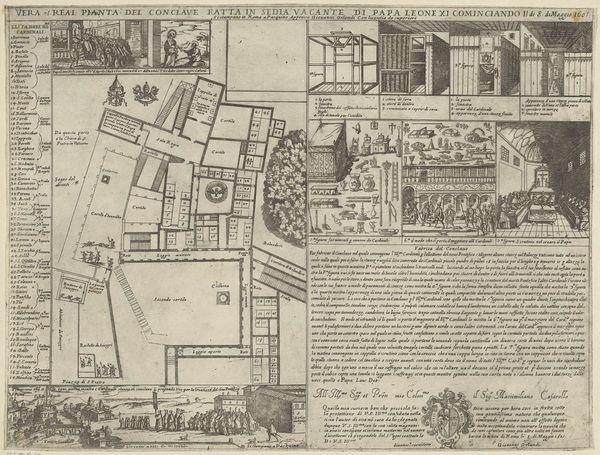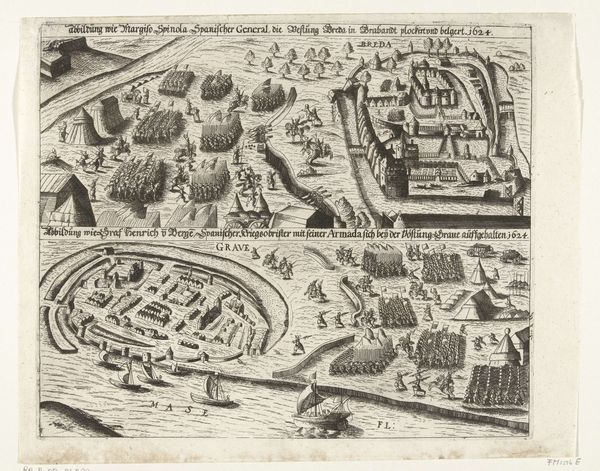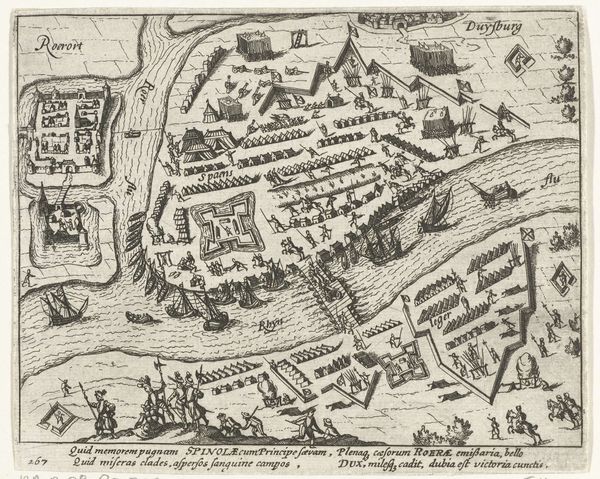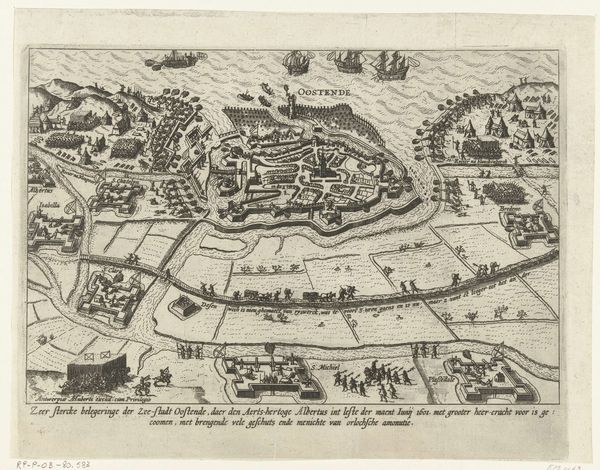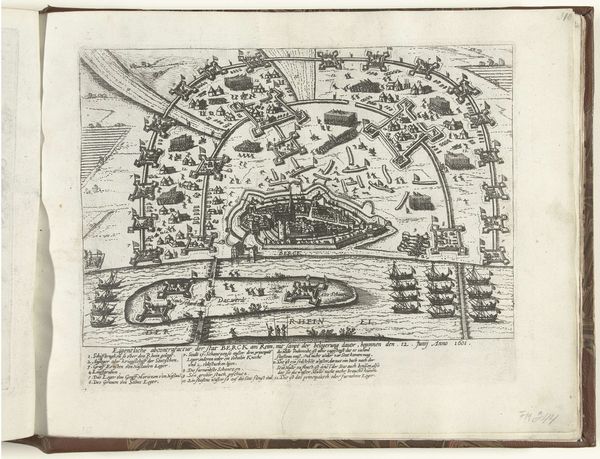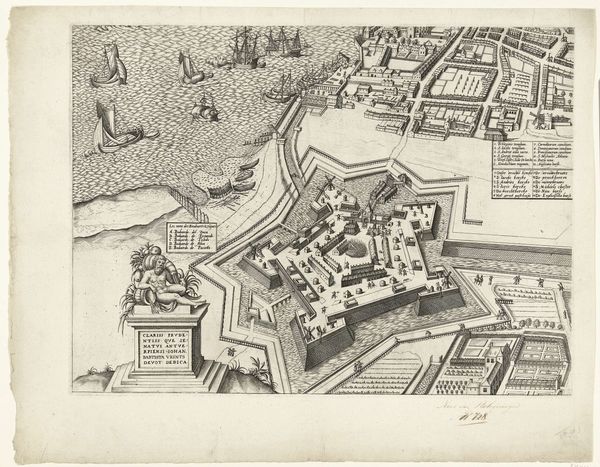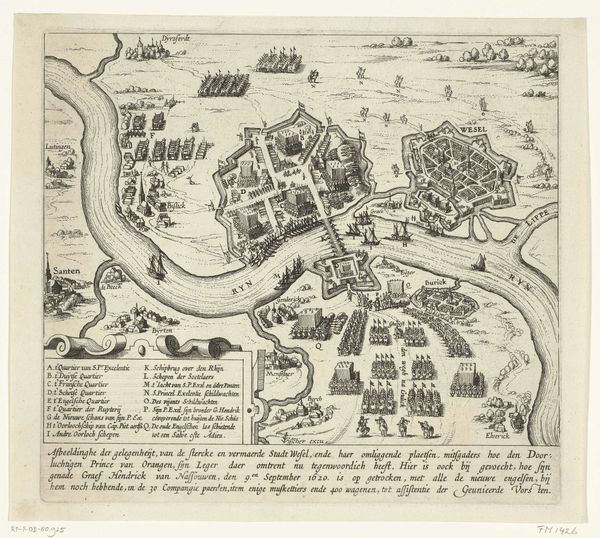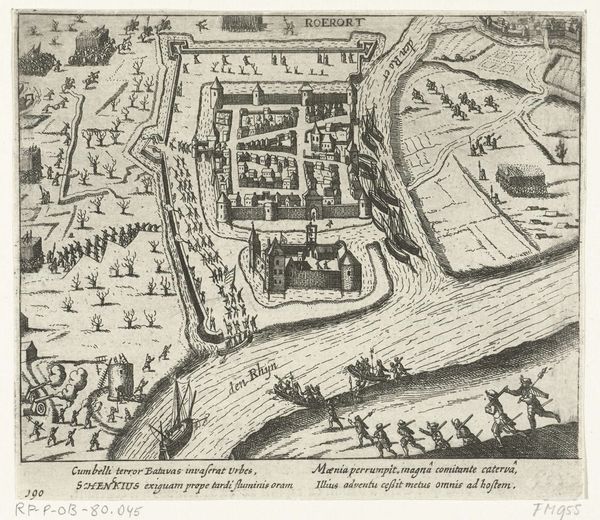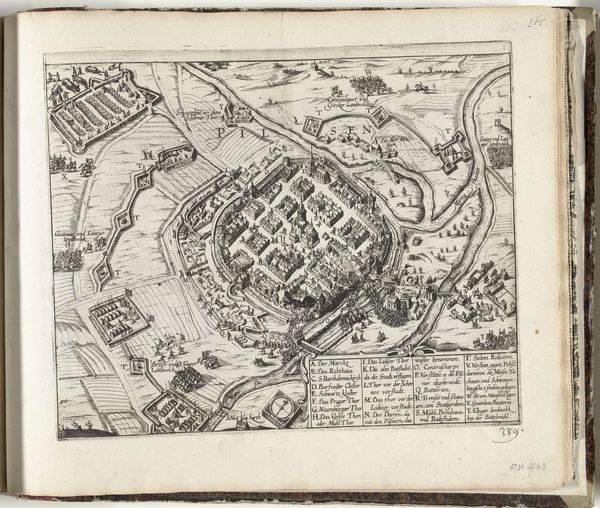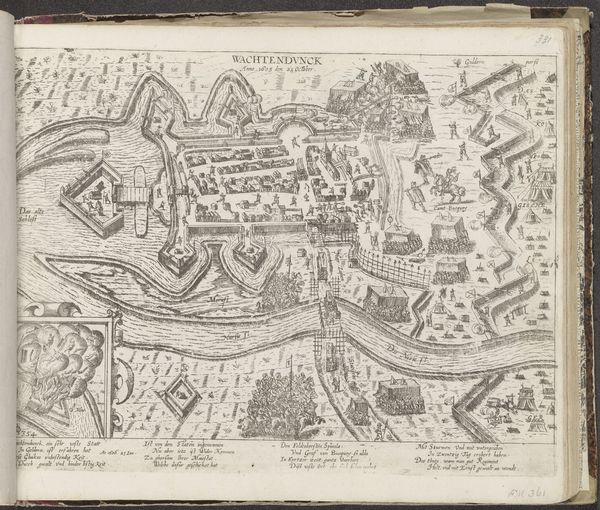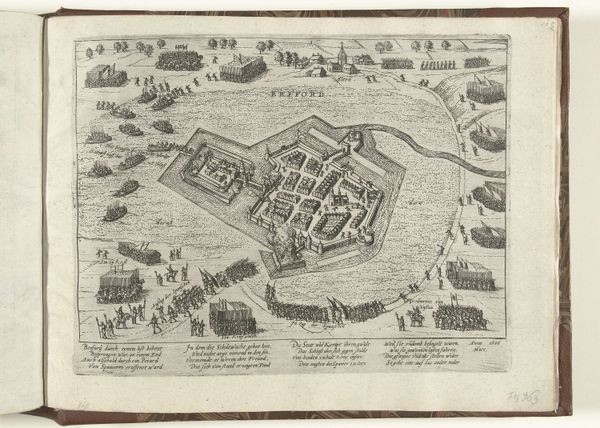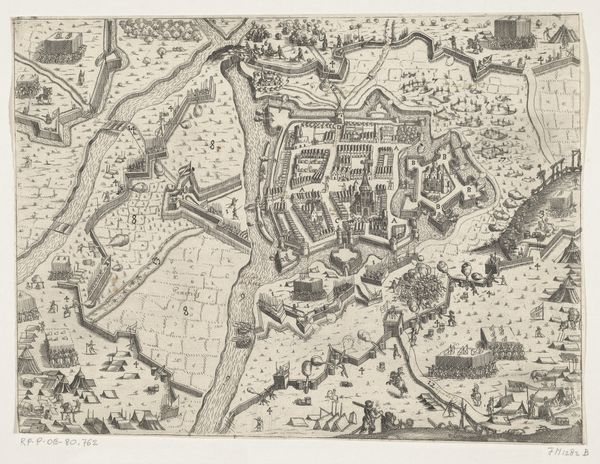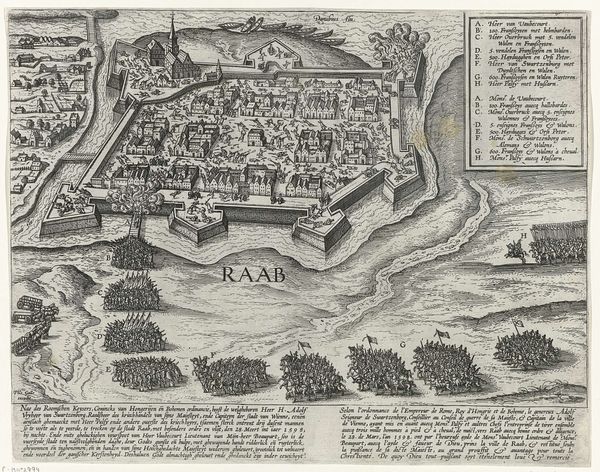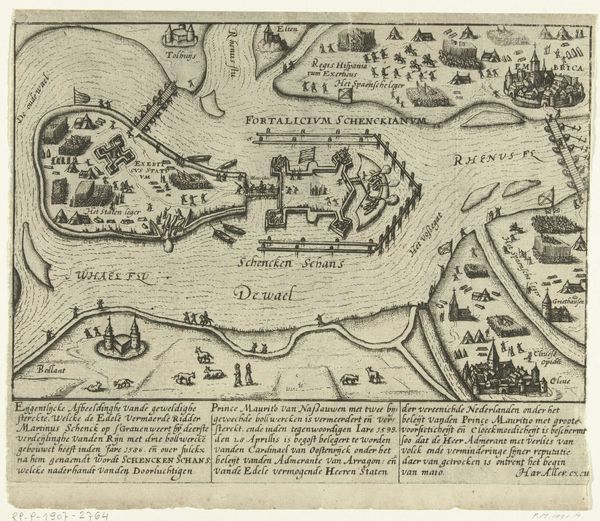
De kamp van het Staatse leger gelegen bij Watervliet naast het kamp van het Spaanse leger, 1605 1605
0:00
0:00
baptistavandoetechum
Rijksmuseum
print, engraving
#
pen and ink
#
baroque
#
dutch-golden-age
# print
#
line
#
cityscape
#
engraving
Dimensions: height 291 mm, width 380 mm, height 176 mm, width 390 mm
Copyright: Rijks Museum: Open Domain
Baptista van Doetechum made this print in 1605, showing the camps of the Dutch and Spanish armies near Watervliet. But this isn’t just a record of a military standoff; it's a window into the 17th-century Dutch Republic’s self-image during the Eighty Years' War. Consider the visual language. The highly detailed, bird's-eye perspective lends an air of authority and control, reflecting the Dutch Republic's growing power. Yet, the presence of both armies suggests a more complex narrative. Are we meant to see a balance of power, or a subtle commentary on the ongoing conflict and its impact on the land? Prints like these were powerful tools of propaganda, shaping public opinion and solidifying national identity. To understand its full meaning, we need to delve into the archives, exploring period documents and considering the broader social and political context in which it was created. Only then can we fully appreciate its role in the construction of Dutch identity.
Comments
No comments
Be the first to comment and join the conversation on the ultimate creative platform.
